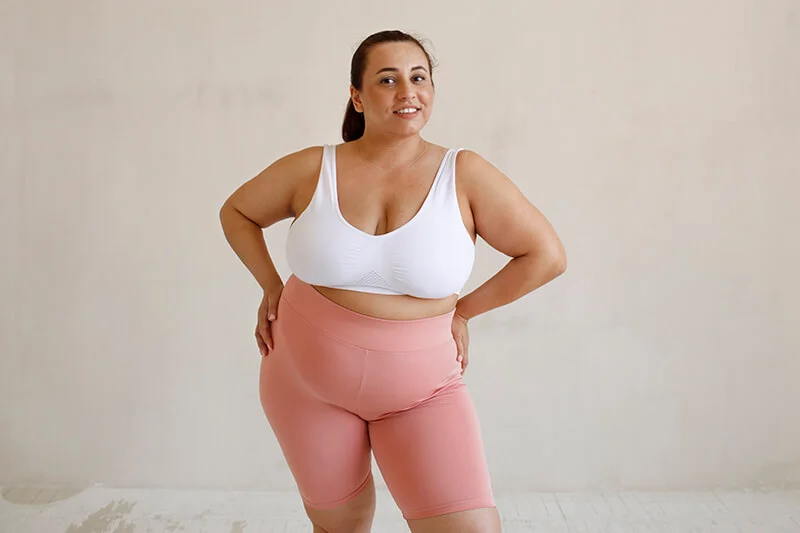Exercise keeps you healthy and can help you lose weight. You can stay fit and flexible in winter with these sports.
Wet, cold and uncomfortable? In the cold season, we feel like doing a lot of things – just not sport. How good that there are indoor sports that can be practised in all weathers. Whether it’s yoga, swimming or cycling on the exercise bike – these versatile indoor sports are an effective way of shedding extra pounds.
Aquafitness and swimming for overweight people
Swimming – whether indoors or outdoors – is one of the best sports for training the whole body and protecting the joints at the same time. Swimming promotes cardiovascular health and increases endurance. Swimming uses many muscles at the same time. This means you consume a lot of calories. The water carries your weight and relieves your joints. And it offers your body natural resistance. Therefore, any movement in the water is more effective than on land. It doesn’t always have to be the fast lane swimming. Water gymnastics or easy swimming are just as effective. Another advantage: Many exercises and movements are much easier to perform in the water than on land.
Yoga for overweight people
Yoga is only for slim people who can twist themselves like a pretzel? Not at all! Yoga is great for all weight classes. It increases mobility, strengthens the back, makes the body feel better and can even stimulate digestion. Many yoga postures can be modified so that they put less strain on the joints. Although yoga is often perceived as a relaxing activity, it can effectively build and strengthen muscles – which in turn stimulates the metabolism. Conscious breathing, which is taught in many yoga practices, helps to increase lung capacity and better supply the body with oxygen. But that’s not all: The mindful and relaxing elements of yoga are even said to reduce stress hormones – and these are known to be linked to obesity.
Tai Chi and Qigong for obesity
Both sports also originate from Asia and are particularly gentle. They combine movement with breathing and meditation to strengthen body and mind. They offer many advantages for people who are overweight: The flowing movements are easy on the joints and promote mobility and balance. Although Tai Chi and Qigong are not intensive, they are said to promote cardiovascular health and help lower blood pressure. Conscious breathing can improve lung function and increase oxygen uptake.
Equipment training for overweight
Cycling on the home trainer is an ideal sport for overweight people at home. Here you can determine the pace and intensity yourself. Cycling improves cardiovascular fitness and stimulates fat metabolism. Calorie consumption increases: 10 minutes of cycling burns approx. 97 calories. And the longer you cycle, the more weight you lose. When cycling, almost 70 percent of the body weight is carried by the saddle – which is easy on the joints. You can also train at home or in the gym with a rowing machine to protect your joints. Others like to use quality treadmills. On a treadmill, you can adjust the speed and incline angle precisely and adapt your training to your own fitness level. Another advantage: you can watch series or listen to music while exercising at home – so it doesn’t get boring so quickly.
How much exercise is good for me?
Many people believe that they have to exercise for hours to achieve results. But that’s nonsense! Even small amounts can make a big difference. The German Cardiac Foundation advises healthy adults to be moderately active for 30 minutes at least five times a week. These 30 minutes do not have to be in one go. Start with 5 to 10 minutes a day and increase slowly. Moderately active means, for example, swimming or cycling at a medium pace. If you sweat easily while cycling, even better! But make sure you don’t burn out and can still have a good conversation while exercising. Listen to your body and give it the time it needs.
Tip: Plan to exercise at least three times a week. How about an exercise diary in which you record how often you exercise?




